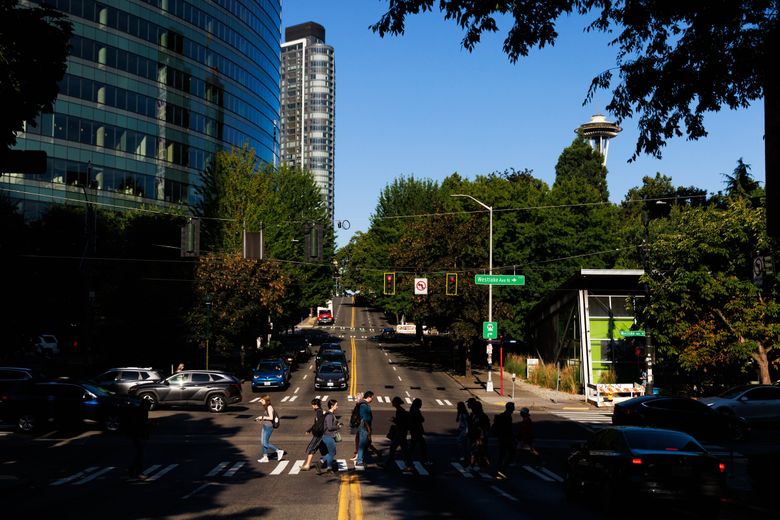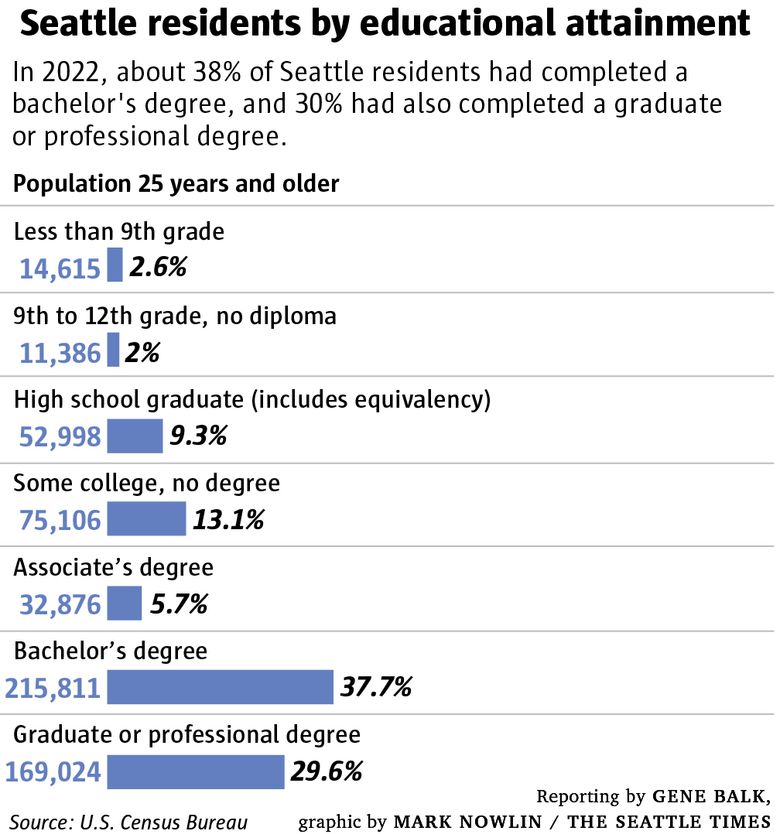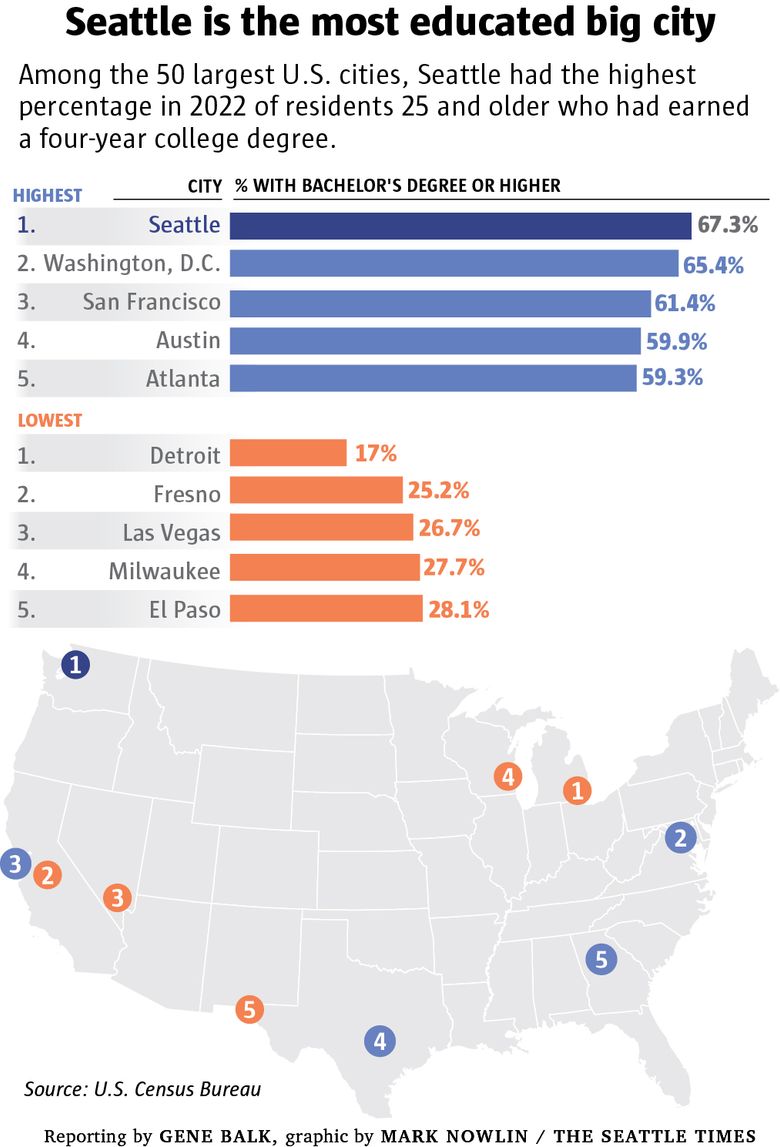People without college degrees increasingly rare in Seattle
Oct. 12, 2023 at 6:00 am

Seattle has long been known as an educated city, and statistics back that up. (Erika Schultz / The Seattle Times)
Gene Balk / FYI Guy
Seattle is well known as a highly educated city, and that’s generally considered a point of civic pride. But could we actually be getting too educated?
From 2010 to 2022, Seattle grew faster than any other big U.S. city. The population increased by 23%, or nearly 140,000 people. So it’s remarkable that one demographic group actually shrank in number during this period: Seattleites who do not have a college degree.
Data from the Census Bureau’s annual American Community Survey, which was released last month, shows in 2022, about 187,000 city residents 25 and older did not have a four-year college degree. That’s down slightly from 2010, when an estimated 195,300 had not graduated from college.
Meanwhile the number of Seattle residents with a bachelor’s degree or higher jumped from 248,600 in 2010 to 384,800 in 2022. As a share of the city’s 25-and-older population, that represents an increase from 56% to 67%. Of Seattle’s 384,800 college grads, around 215,800 had a bachelor’s while 169,000 had also earned a graduate or professional degree.

And it really wasn’t that long ago when the majority of Seattle residents 25 and older did not have a college degree. You only need to go back to 2000, when census data shows just 47% here had graduated from college.
It’s true that Seattle’s workforce is largely white collar, but like every other city, it needs service workers, sales people and others who perform jobs that don’t require a college degree. The relative scarcity of people without college degrees could be making it difficult for employers to fill certain jobs. There is no data showing how many Seattle college graduates are working jobs that don’t require college degrees, but it seems likely that there are quite a few, given the numbers.
In terms of the educational attainment of its residents, Seattle differs greatly from most of the country. Nationally, a minority of the 25-and-older population — just 36% — had completed a college degree.
Even compared with other large cities, Seattle stands out. Among the nation’s 50 most-populous cities, Seattle ranked No. 1 for the percentage of the 25-and-older population with a college degree in 2022. Washington, D.C., was No. 2 at 65%, followed by San Francisco at 61%.

Not surprisingly, less-affluent cities had a lower share of residents who are college graduates. Detroit stood apart from the pack with just 17% holding a college degree, well behind Fresno, Calif., at 25% and Las Vegas at 27%.
Among young adults in Seattle, the share who were college graduates was even higher than the 67% rate for the total 25-and-older population. Among city residents age 25 to 34 in 2022, a remarkable 76% had earned a four-year college degree. In raw numbers, that’s 140,000 college grads compared with just 43,000 young adults who didn’t have a college degree.
Nationally, only about 40% of people 25 to 34 had a college degree.
In Seattle, a slightly higher percentage of women than men held a college degree, 68% compared to 66%. This gender gap is more pronounced among younger adults. Among those 25 to 34, 79% of women had college degrees, compared with 74% of men. Among Seattle residents 65 and older, a higher share of men had college degrees compared with women, 57% to 51%.
Women became the majority on American college campuses decades ago, and now represent 58% of undergraduates, according to the National Center for Education Statistics. Nationally in 2022, 37% of women held a college degree compared with 34.5% of men.
Will the share of Seattle’s population that is college educated continue to grow, while those without a college degree become increasingly rare?
There is some indication this might not happen — that Seattle may have already reached “peak college.”
The share of the 25-and-older population with a college degree actually dropped slightly last year, from 68% in 2021 to 67% in 2022. In a reversal from recent years, there was significant growth in the number of non-college-educated city residents. From 2021 to 2022, the estimated number without a college degree increased by about 10,000, while the estimate for those with a college degree was up by only 4,000.
But a single-year change isn’t a trend. Also keep in mind that there’s always some degree of error built into survey data. So it could just be a blip. I’m curious to see what next year’s release of census data shows.
Gene Balk / FYI Guy: gbalk@seattletimes.com; on Twitter: @genebalk. |







